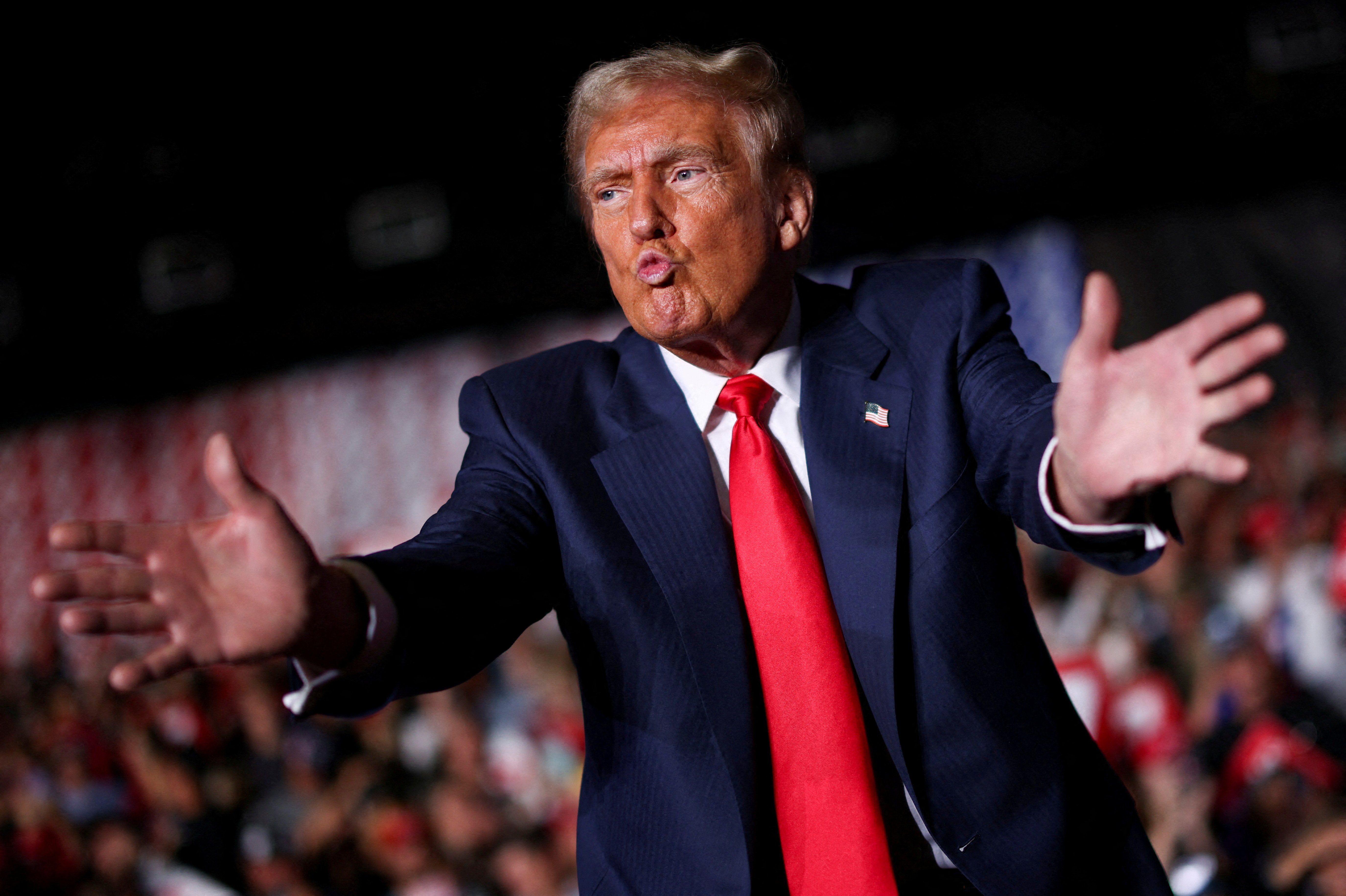Donald Trump has already begun to ramp up threats of a trade war, with a vow to enact sharp new tariffs across the board on imports from Mexico, Canada, and China to strong-arm them into stopping the flow of drugs and migrants. But his plans may quickly fall apart, wrote Eduardo Porter for The Washington Post, because there are economic truths that Trump can't avoid through bullying.
Economists have sounded the alarm that Trump's proposed tariff regime will vastly increase the cost of goods for most Americans in a variety of categories.
To understand how realistic Trump's plans are, Porter wrote, look at Javier Milei, the libertarian elected president of Argentina who pushed sweeping economic reforms, and of whom Trump is a massive fan.
"Campaigning for Argentina’s presidency last year ... Javier Milei called Chinese President Xi Jinping a 'murderer.' He vowed never to 'make deals with communists.' Once in office, though, he thought better about bashing a country that takes some 10 percent of Argentina’s exports, invests billions in its infrastructure and provides a lifeline to shore up its balance of payments. 'China is an interesting commercial partner,' Milei said this year. 'They do not demand anything. The only thing they ask is to be left alone.'"
ALSO READ: Multiple Republicans reveal plan to boot Mike Johnson as speaker
The fact is, wrote Porter, Trump's tariffs will run into the reality that he can't force other countries to follow suit, and the effect his tariffs will have on our partners around the world will erode U.S. goodwill and soft power very quickly.
"The problem will be widespread around the world, with countries punished by a 10 to 20 percent tariff Trump has promised across the board while simultaneously being called upon to shoulder the costs of furthering Trump’s designs on China," he wrote. "This is why Trump’s strategy will probably fail ... The more likely outcome is that the rest of the world continues to do business with China, which offers investment and an open market while the United States erects barriers against everybody."
This is particularly the case in Latin America, which could turn further toward the Chinese sphere of influence.
Ultimately, wrote Porter, the U.S. needs to offer the rest of the world something in return for containing China — even closer trade partnerships. The ideal strategy, he concluded, "would call for building alliances among like-minded countries to resist Chinese mercantilism. But that would require more carrots, which Trump seems to have little interest in offering."
